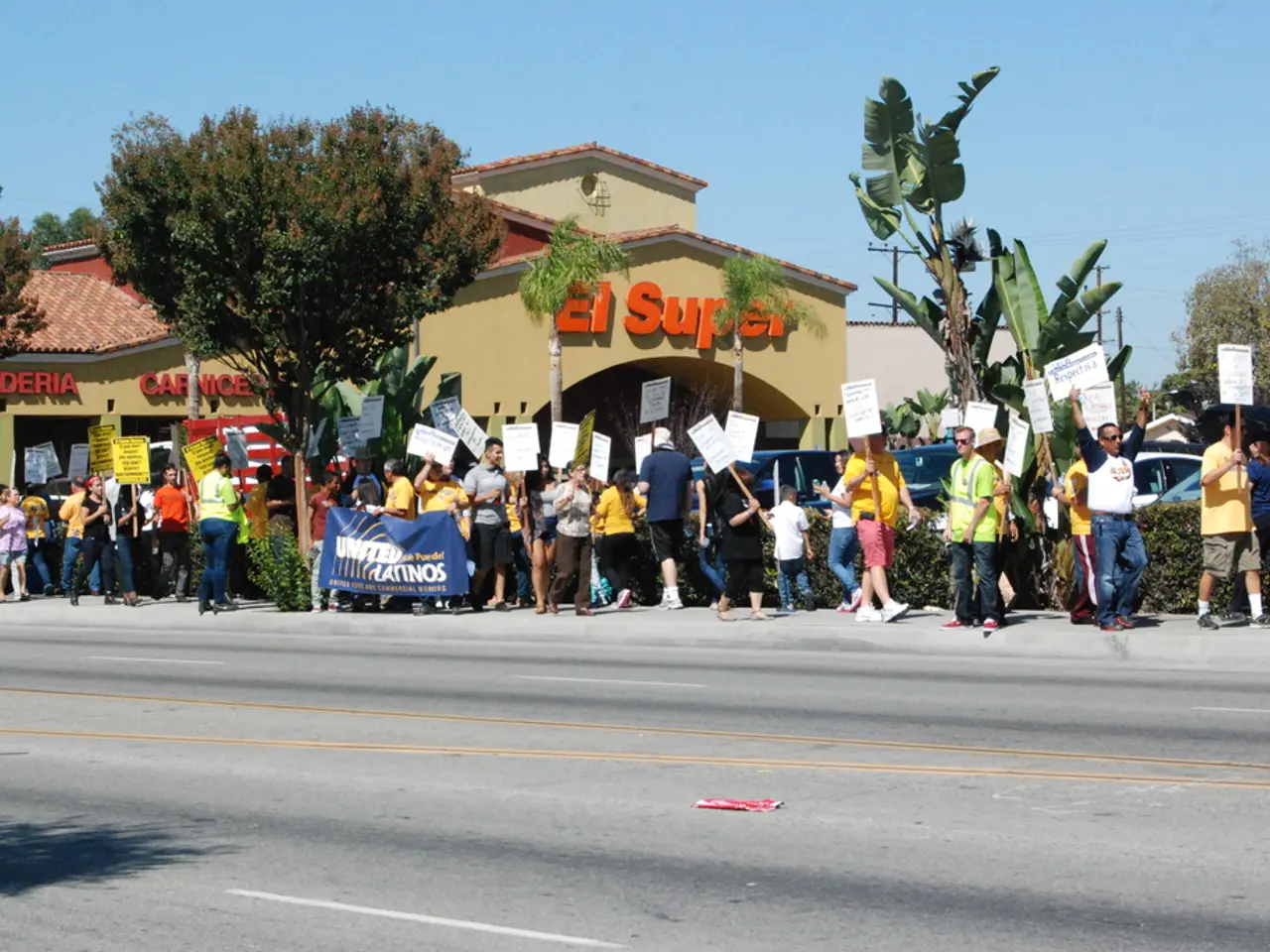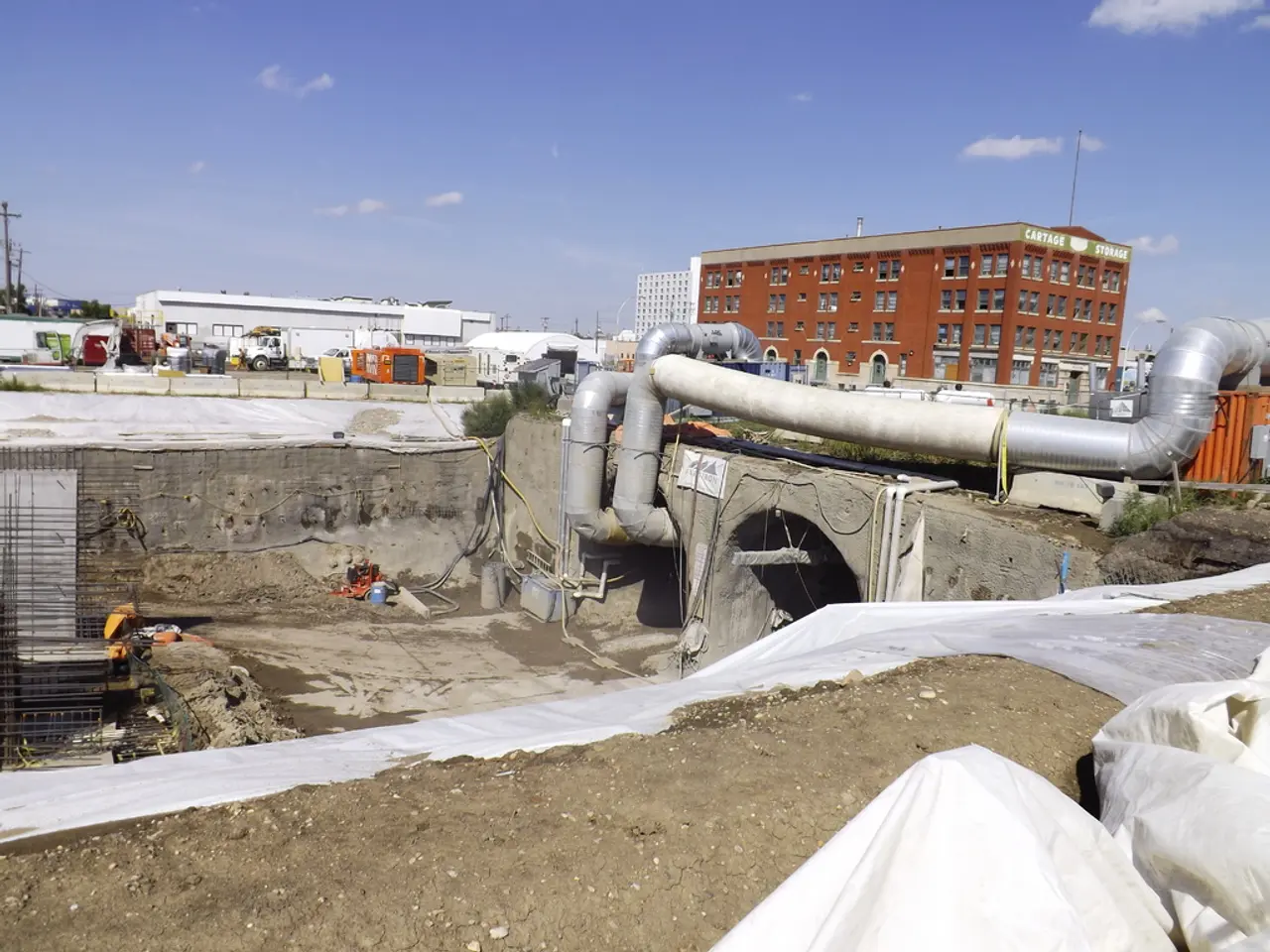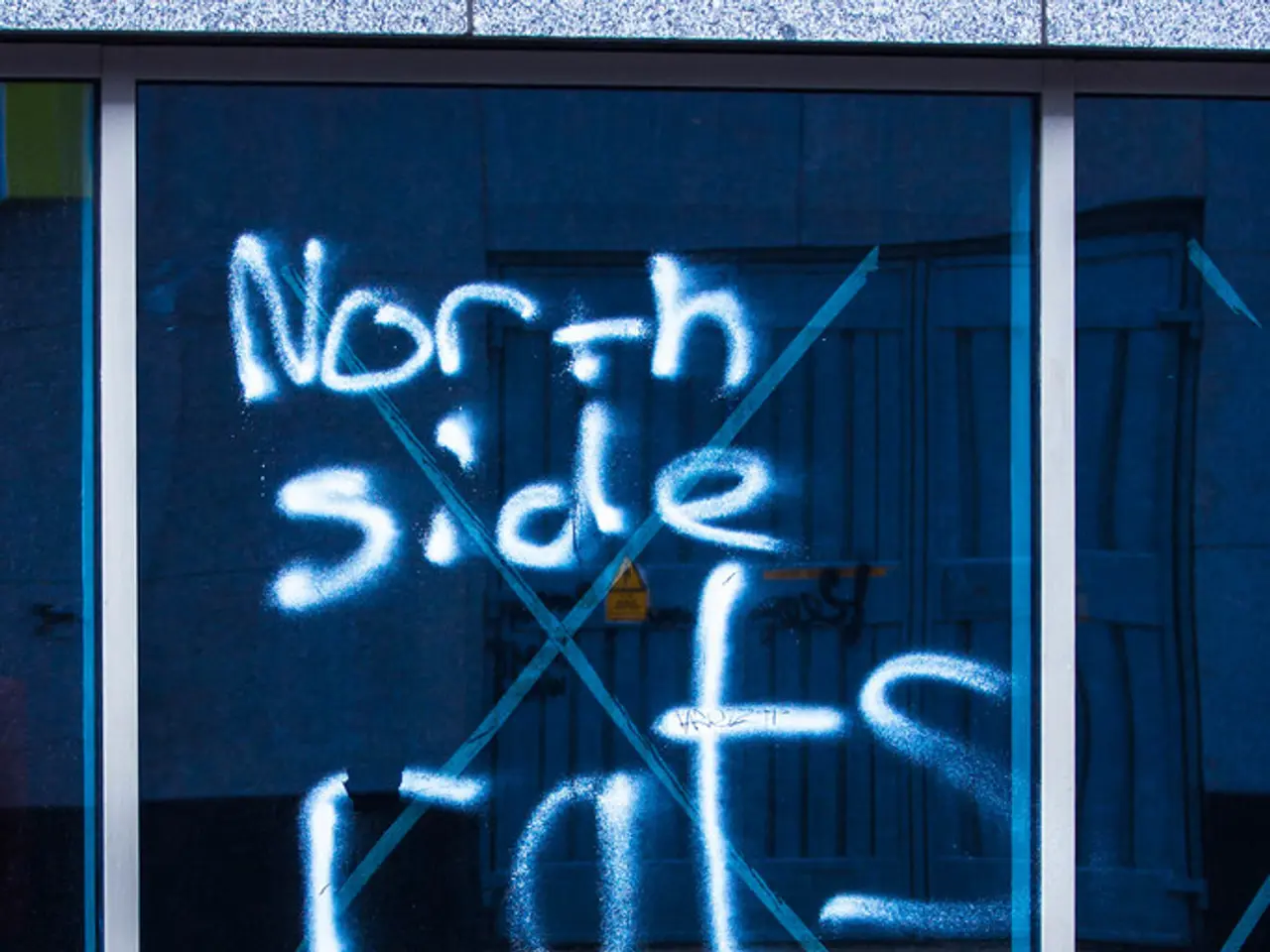Controversial Electoral Reform Debate Rages in Texas, Favoring Trump's Interest Among Republicans and Democrats
The ongoing standoff in Texas over the proposed electoral map reform is shaping up to be a critical battleground for control of the U.S. House of Representatives. Republicans, backed by former President Donald Trump and Governor Greg Abbott, have put forward a new congressional map aiming to add five Republican-held seats by redrawing districts to their advantage ahead of the 2026 midterms [1][2].
This proposal significantly reshapes areas in Austin, Dallas, Houston, and South Texas, including districts with large Hispanic populations, to strengthen Republican control [1]. The map redraw has been released during a special legislative session but faces fierce Democratic opposition and likely legal challenges, especially over concerns that it dilutes minority voting power and potentially violates the Voting Rights Act [1][2][3].
The implications of this standoff are far-reaching:
- Potential Republican gains of five House seats in Texas, which would help the GOP solidify its narrow majority in the U.S. House of Representatives [1][2].
- Disruption and uncertainty in upcoming elections, notably in Houston where districts like the 9th and 18th are drastically redrawn, affecting Democratic incumbents and open seats [2].
- A broader national impact as this redistricting battle in Texas may trigger similar legal and political fights elsewhere, such as California, where officials have expressed opposition to gerrymandering efforts linked to the Texas plan [3][5].
- Increased partisan conflict in the redistricting process, with Democrats accusing Republicans of undermining voting rights and Republicans asserting the maps reflect legitimate redistricting to maximize voter choice [1][5].
Notably, the arrest warrants issued by Republicans to force Democrats to return are only valid in Texas. If the Democrats do not return, there will be no quorum to proceed with the vote. The situation in Texas is seen as having national implications, with New York Governor Kathleen Hochul, a Democrat, describing it as "war."
Trump has declared that he won Texas in an interview with CNBC and has argued that he has the right to "five more seats" in Texas because he received "the most votes in Texas history." However, the reform is considered an attack on democracy by the Democrats. Trump has also claimed that he has a good governor in Texas, praising Governor Greg Abbott's competence.
If successful, the reform could potentially give the Republican leader up to five more seats in next year's elections. The reform is intended to solidify U.S. President Donald Trump's support in Texas and pave the way for the 2026 midterm elections. However, Texas Democrats have left the state to avoid voting on the reform, and protests against the reform have taken place outside Trump's house.
The current status of the electoral map reform standoff in Texas remains uncertain, with both sides dug in and ready for a fight. The outcome of this battle could have significant implications for the balance of power in the U.S. House of Representatives.
[1] The Texas Tribune [2] The Hill [3] Politico [4] CNBC [5] The New York Times
- The ongoing standoff in Texas over the proposed electoral map reform, fueled by politics and general news, could potentially lead to a policy-and-legislation shift that benefits the Republican party and solidifies their control in the U.S. House of Representatives, particularly amid war-and-conflicts like legal challenges and demonstrations.
- This standoff in Texas, a critical battleground in American politics, not only impacts the local landscape but also has far-reaching implications for war-and-conflicts such as redistricting battles in other states like California, while raising concerns about policy-and-legislation, including potential violations of the Voting Rights Act.






